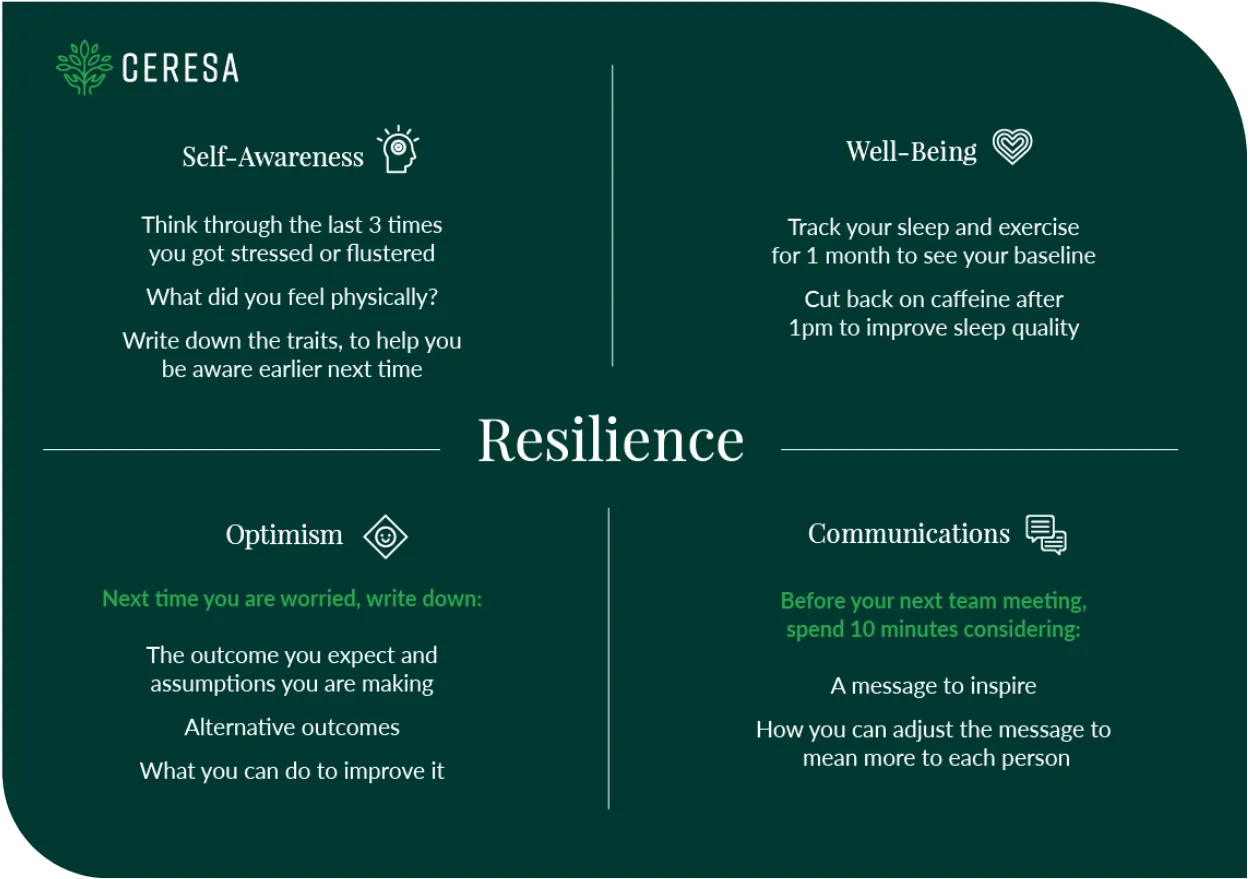Emotional resilience plays a vital role in achieving career success. It not only helps individuals navigate through setbacks and challenges but also enables them to maintain a positive mindset and adaptive outlook. In this article, we will explore the profound impact of emotional resilience on one’s professional growth, productivity, and overall satisfaction.
The Importance of Emotional Resilience
Emotional resilience plays a crucial role in achieving career success. It refers to the ability to bounce back from setbacks, adapt to change, and maintain a positive mindset amidst challenges and stressors in the workplace.
One of the key reasons why emotional resilience is essential for career success is that it enables individuals to handle difficult situations effectively. When faced with obstacles, emotionally resilient individuals are more likely to remain composed, think clearly, and come up with innovative solutions.
In addition, emotional resilience promotes better interpersonal relationships. Being able to manage emotions and respond calmly in challenging situations helps build trust and credibility among colleagues, clients, and superiors. This, in turn, enhances collaboration, teamwork, and overall work performance.
Furthermore, emotional resilience is closely linked to mental well-being. By developing emotional resilience, individuals can better cope with stress, anxiety, and burnout, which are common in the professional world. This leads to improved overall mental health and increases the ability to handle work-related pressure.
Lastly, emotional resilience fosters personal growth and development. It allows individuals to learn from failures, embrace change, and continually adapt to evolving work environments. As a result, emotionally resilient individuals are more likely to seize opportunities for career advancement and professional growth.
In conclusion, emotional resilience is a vital attribute that significantly impacts career success. By honing this skill, individuals can better navigate through challenges, build strong relationships, enhance mental well-being, and unlock personal growth opportunities in the professional sphere.
Cultivating Emotional Resilience in the Workplace
Emotional resilience is a crucial trait that can greatly impact career success. In today’s fast-paced and demanding work environments, individuals who possess emotional resilience are better equipped to navigate challenges, setbacks, and stress effectively.
Cultivating emotional resilience begins with self-awareness. It involves recognizing and understanding one’s own emotions, as well as being able to manage them in a healthy and productive way. This not only helps individuals regulate their own emotions but also enables them to empathize with and support their colleagues, fostering a positive work environment.
Additionally, developing strong coping mechanisms is essential for emotional resilience. This entails adopting healthy stress management strategies and seeking support when needed. By handling pressure and adversity constructively, individuals can maintain their focus, problem-solving abilities, and overall well-being.
Building a network of strong relationships and social support is another key aspect of cultivating emotional resilience at work. Connecting with colleagues and mentors provides opportunities for collaboration, advice, and guidance. These relationships can offer emotional support and help individuals gain different perspectives, boosting their resilience and adaptability.
Furthermore, maintaining a positive mindset plays a vital role in emotional resilience. Approaching challenges with optimism, embracing change, and learning from failures are essential components of this mindset. By viewing setbacks as opportunities for growth and self-improvement, individuals can bounce back quickly and maintain motivation in the face of difficulties.
In conclusion, emotional resilience is a valuable attribute that contributes to career success. By cultivating self-awareness, adopting effective coping mechanisms, building relationships, and maintaining a positive mindset, individuals can develop and enhance their emotional resilience in the workplace. This, in turn, enables them to thrive amidst challenges, pursue personal growth, and achieve their career objectives.
Developing Strategies for Emotional Resilience
In today’s fast-paced and highly demanding work environments, emotional resilience has become a crucial factor for career success. Emotional resilience refers to an individual’s ability to bounce back from setbacks, adapt to change, and maintain a positive mindset despite challenges.
Developing strategies for emotional resilience involves several key components. Firstly, it is important to cultivate self-awareness and understanding of one’s emotions. This involves recognizing and acknowledging both positive and negative emotions, as well as understanding their impact on thoughts and behaviors.
Building a strong support network is another vital aspect of emotional resilience. Surrounding oneself with people who offer understanding, encouragement, and practical advice during difficult times can enhance one’s ability to stay resilient. It is equally important to seek support from mentors or coaches who can provide guidance and help in developing coping strategies.
Practicing stress management techniques is essential for emotional resilience. This may include regular exercise, deep breathing exercises, mindfulness practices, or engaging in hobbies that promote relaxation. By incorporating these techniques into daily routines, individuals can better manage stress levels and maintain emotional stability.
Additionally, cultivating a positive mindset is crucial for building resilience. Focusing on strengths, reframing negative experiences, and practicing gratitude can help individuals develop a more optimistic outlook and overcome challenges with greater ease.
Finally, embracing failure as a learning opportunity is a key strategy for emotional resilience. Viewing setbacks as valuable lessons and reframing them as stepping stones towards growth and improvement can enhance one’s ability to bounce back and persevere in the face of adversity.
Conclusion
In conclusion, emotional resilience plays a crucial role in determining career success. Individuals who possess the ability to bounce back from setbacks, manage stress effectively, and maintain positive emotional well-being are more likely to thrive in their careers. Emotional resilience allows individuals to adapt to adversity, overcome challenges, and develop the necessary skills and attitudes for professional growth. Therefore, cultivating emotional resilience is essential for achieving long-term career success.




